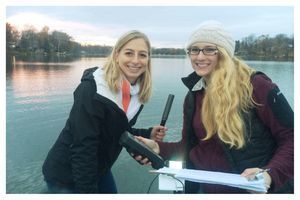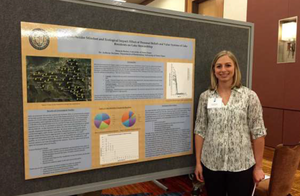Stakeholder Mindset and Ecological Impact: Do Personal Beliefs and Values of Lake Papakeechie and Lake Wawasee Residents Influence Lake Stewardship?
- Student
- Hannah Becker
- College(s)
- College of Arts and Letters
- Faculty Advisor
- Anthony Serianni
- Class Year
- 2015

Do Personal Beliefs and Values of Lake Papakeechie and Lake Wawasee Residents Influence Lake Stewardship?
This interdisciplinary project combined fundamental limnological studies of an Indiana lake (Lake Papakeechie (LP), Syracuse, Indiana) and its surrounding watershed with social psychological studies of two contrasting, adjoining lake communities (Lake Papakeechie and Lake Wawasee (LW)).

My research was composed of three parts: (1) development and implementation of new lake limnological studies in collaboration with the Lake Papakeechie Sustainability Initiative (LAPSI), an emerging lake sustainability group, (2) concurrent social psychological studies of the values and attitudes of residents about lake management/ecology in two adjoining lake communities, one in which lake environmental studies are well established (LW), and the other where these studies are under development (LP), and (3) culmination of research at an academic conference as well as educational and protocol prep for the continued use of research by lake residents.

Superimposed on the difference in environmental stewardship are significant disparities in the socio-economic status of the two communities, in the size and status (public vs. private) of the two lakes, and in the relative environmental impacts of one lake on the other (water flows from LP into LW). These disparities have led to an unhealthy lack of communication, cooperation and collaboration between the two lake communities, resulting in the less-than-ideal management of the two lakes and their surrounding watershed.
The overall aim of the project is to couple lake limnology and watershed ecology studies with social psychology work, in an effort to better understand the lake communities, facilitate improved communication between them, thus leading to the prospect of better ecological management and outcomes.